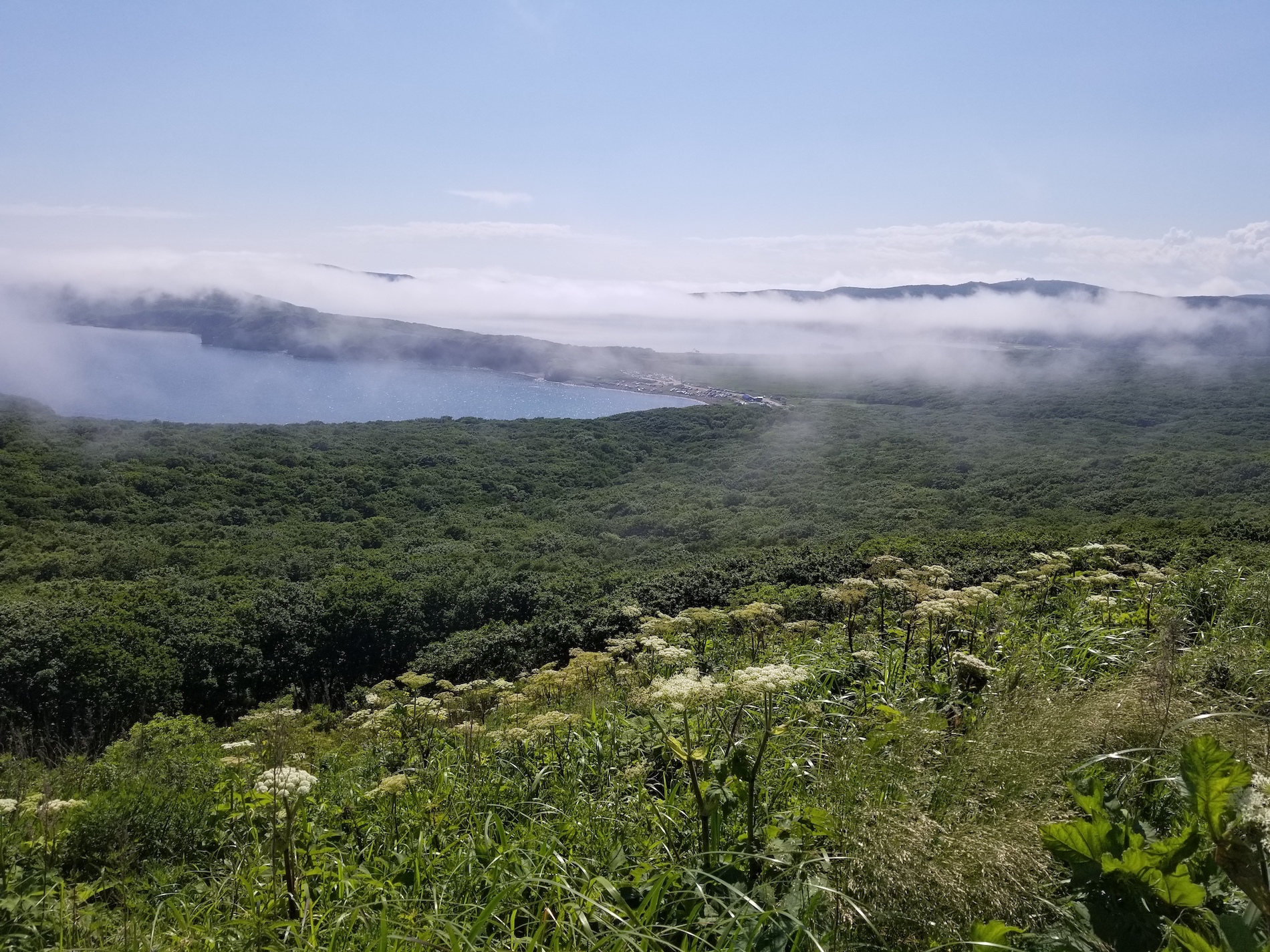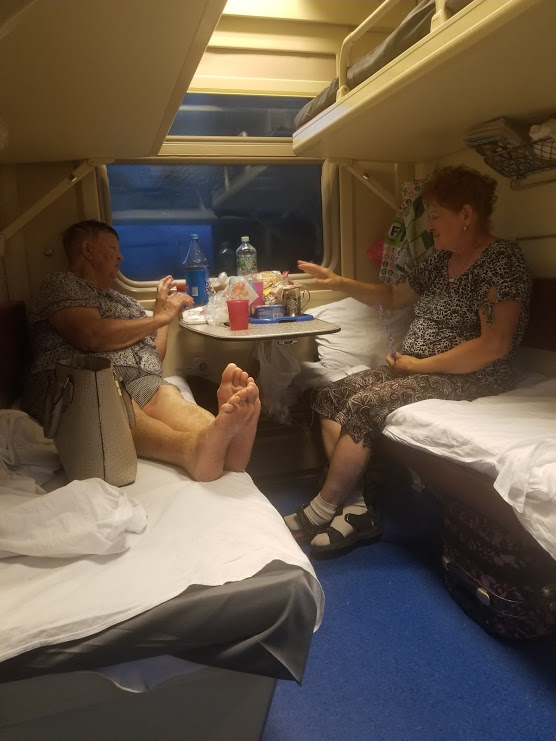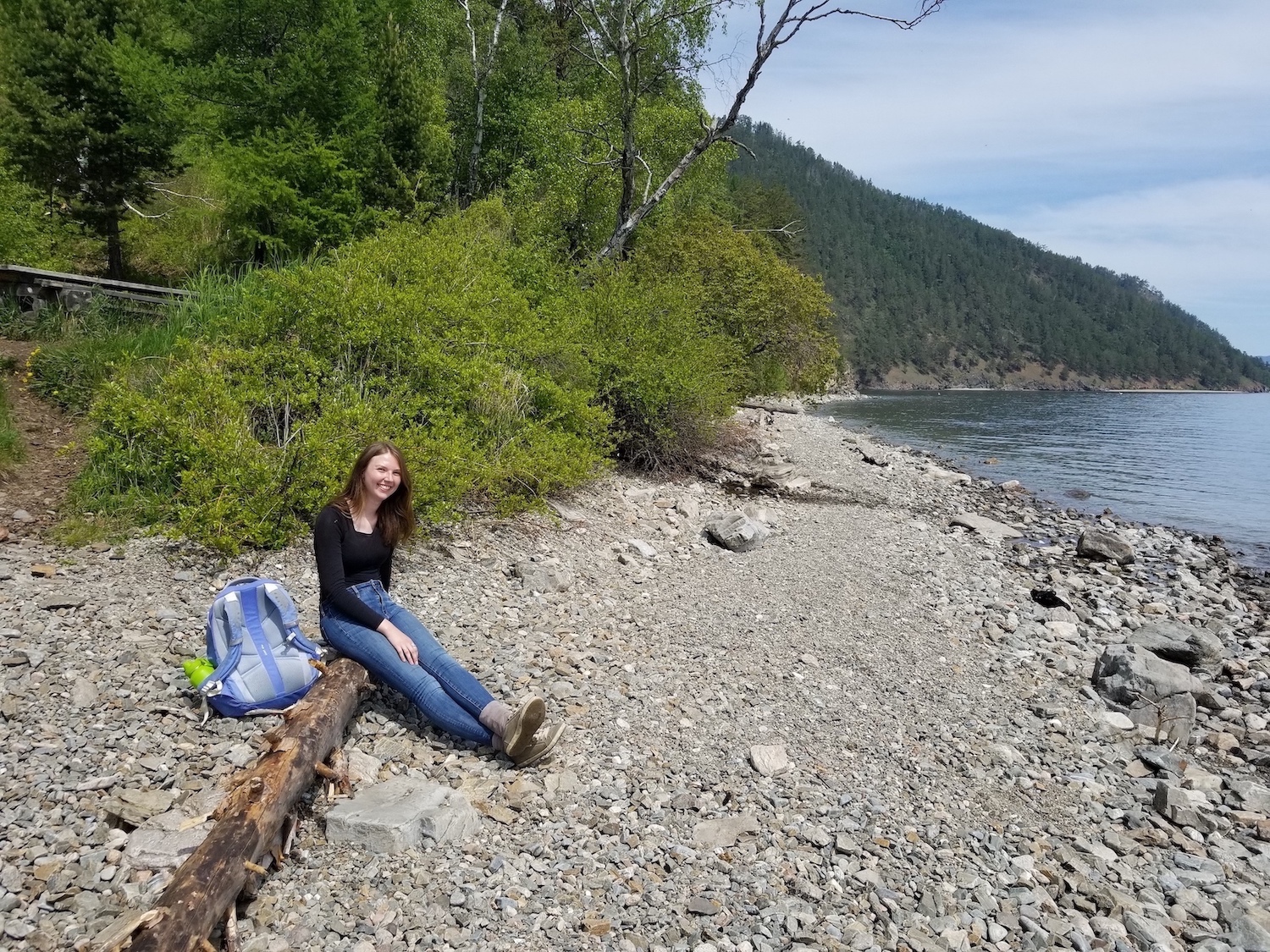Solo travel, especially solo female travel, usually comes with an assumption of fear. I was afraid to complete the Trans-Siberian Railroad by myself. But when I unexpectedly separated from my travel partner midway through the trip, I found the opposite of conventional wisdom – I felt safer and braver alone.

When I learned that my brother would not be able to join me as planned, I put out a general call for a travel partner to my email blog.
I still wanted to go on the trip and figured that traveling with someone was safer than with no one. Even though I was deeply familiar with Russia – I had lived there for almost a year, spoke Russian fluently and had done a few weekend trips by myself – I was afraid of loneliness, of unwanted attention, claustrophobic train cars, and of having problems hiking by myself in the wilds of Russia.
An acquaintance from high school who also spoke Russian and had lived in Russia indicated an interest in joining me. It seemed like a good match. The planning process went smoothly.
It was only after he arrived that I started to realize that traveling for three weeks with a long-lost acquaintance is, to put it mildly, a mistake.
As an introvert expending colossal social energy to put up with a travel partner I found irritating, my sense of isolation built up until just the sound of a friend’s voice on the phone made me cry.
Everything I feared came true. My traveling partner made the train cars feel claustrophobic, constantly asking for my attention when all I wanted was to be hypnotized by words on pages and the trees outside the window. The final straw came on a hike near Lake Baikal when he refused opportunities to bring adequate water only to later ask for some of mine. I had been hiking uphill for hours.
With the prospect of the longest stretch of track ahead – 72 hours aboard the train – I decided to change tracks, literally.
Bloodshot eyes, a cracking voice, and an admission that this was a very stressful situation for me helped to convince the woman behind the ticket counter to be patient as I changed my mind several times. The red eyes returned when I boarded my new train early the next morning and saw my compartment mates – three sleeping men. I smelled nicotine-dusted beer rotting between teeth and almost knocked my head into big masculine feet jutting over the edges of bunks all through the corridor. I started texting my mom in a panic that I had made a mistake.
The only mistake was the panic itself.
Not only had the men around me disembarked by midday, but I was sad to see them go. I had enjoyed chatting about everything from politics to creativity with one of the men in particular, who frequently hosts international Couchsurfers, makes YouTube videos for a living, and met his wife on a train.
 The guys were replaced by two high-schoolers and their grandmother, who offered me food and accepted my offer of Advil in return when the rattling of the train gave her a headache.
The guys were replaced by two high-schoolers and their grandmother, who offered me food and accepted my offer of Advil in return when the rattling of the train gave her a headache.
I also spent time with two other grandmothers near some empty window seats where I would sometimes go to read. They were snarky fast friends who had met at the beginning of the seven day journey, and they drew me into their arguments about the cause of fog and danced to blasted techno versions of Despacito and old-time Russian songs alike.
As soon as I was freed from a traveling companion, I became less lonely.
I felt more empowered to connect with the people around me, without worrying about what he would think of it (you say you have no social energy, but you talk to them and not me?!) or whether he would try to join in and distort the budding relationship.

My prospects for avoiding unwanted attention also improved. My final compartment companions were girls my age. When a young man came over and tried to talk to us, as a cohesive unit of multinational strangers we instantly buried ourselves in books and phones, slyly exchanged looks, and casually mentioned each other’s boyfriends and husbands. Afterward, we laughed about it and spent the rest of the trip talking about dividing household responsibilities between partners and the wild scenery right outside the window.
When I finally arrived in Vladivostok, the very tip of the Russian Far East, I felt confident and refreshed.
Perhaps that’s why I eschewed museums and instead hopped on a bus to a former-military-base-island that only became accessible by bridge a few years ago. The island is covered in clouds and thick green hills, with snakes longer than my arm (I saw one) and no cell phone service. Getting to hike around Lake Baikal, which I had thought would be dangerous alone, was one of the specific reasons I had wanted a traveling companion. Once actually alone, I threw myself into a jungle further from the beaten path, beating the path myself around mud puddles and through clovers as big as my feet.

I turned off the main road on a whim and was rewarded with stunning views and imperial Russian military tunnels from the early 20th century. I switched on my phone’s flashlight and stepped right in. I scrambled down a dusty cliff to reach a beach, and when I was ready to go home but discovered I could not call a taxi from that far out, I sighed and just started walking, eventually coming across a bus stop.
Being responsible for myself was a frightening thought, but a comforting reality.
Without having to spread my limited supply of trust, attention, and energy to my traveling companion, I could devote myself to the people and places around me – to the travel experience itself.